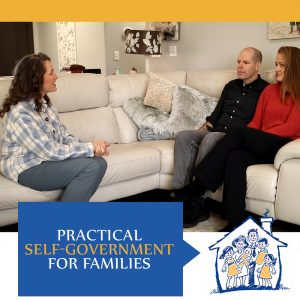Teaching Honesty: What About Gray Area?
"Just wondering what you do when a child denies doing something like this even though you know it was them or else they try to deceive you about it even though they know that no punishment will be given out for their mistake or wrongdoing if they are honest about it. How do you confront them and have them face up to their failures and take responsibility for their actions? My ds10 will get defensive whenever he does something wrong or makes a mistake he then will usually compound this by trying to lie or deceive his way out of it to save face. We end up punishing him for the lying and deceit when really it should have be a non issue if he had just been honest.""Any suggestions?"
There are three steps to handling this situation. Step one; Make sure you are not accusing, but that you look and feel safe to talk to. Step two: Pre-teach the situation before you say anything…………."Right now _________ just happened. I am going to ask you about your actions. If you choose to be honest about your actions you will not earn any negative consequences. (or you could have a positive consequence in place for being honest) However, if you are not honest then you will choose to earn______________ as a negative consequence. I am hoping you will choose to be honest and get praised even though we will have to talk for a minute about the situation. But, the choice is up to you. I will use my power of discernment to determine if you are communicating honestly or not. Step three: Feel your child's response. If he is telling the truth, then praise. But, if you feel wrong about his answer then treat it as dishonest communication and follow through with your family's negative consequence for that behavior. Tip: If you are unsure if the answer is truthful or not, it is a good idea to do a bit of research. After your research do a corrective teaching if necessary. It is better to assume a person with honesty issues has communicated dishonestly and catch the problem then to let things go and encourage more advanced lying skills. Trust me on this one; I was a really good liar when I was young. It is also okay to say, "I don't have this issue completely proven so I can't be sure you had the part in it I think you did, but since you have a history of communicating dishonestly and you are not completely innocent in this situation I will need to follow through with our family government rule on dishonesty so that you will not be encouraged to continue dishonest behaviors. When I see you making honest choices all the time then I will be able to take your word for it every time. I am sure you will keep learning self-government and get to that point in no time." Liars need to be caught. If I wouldn't have been caught it a lie I never would have quit. I will forever be grateful to my friends and their insightful parents who taught them to confront me and make me realize how pathetic I was to lie. Only when I saw what I really was and saw I didn't get anything out of it was I inspired to change the way I communicated forever. And, as Edith Ann would say, "That's the Truth." I hope this helps. Thank you for your patience. I know you waited for a long time to an answer to this. I get to questions as quickly as I can.






